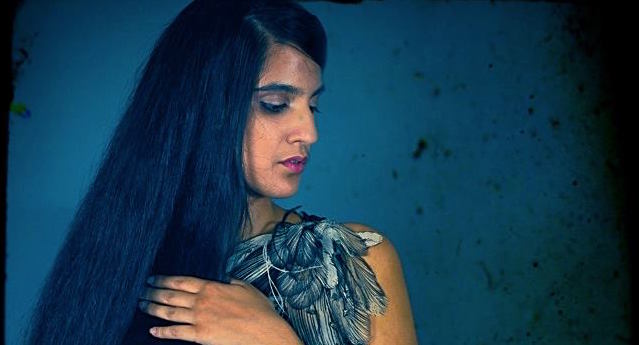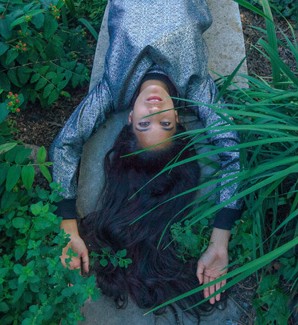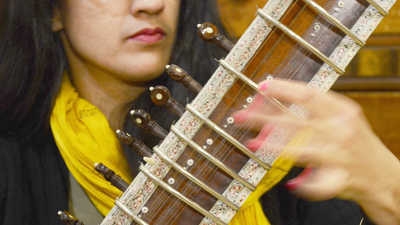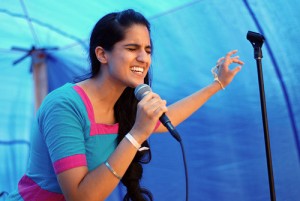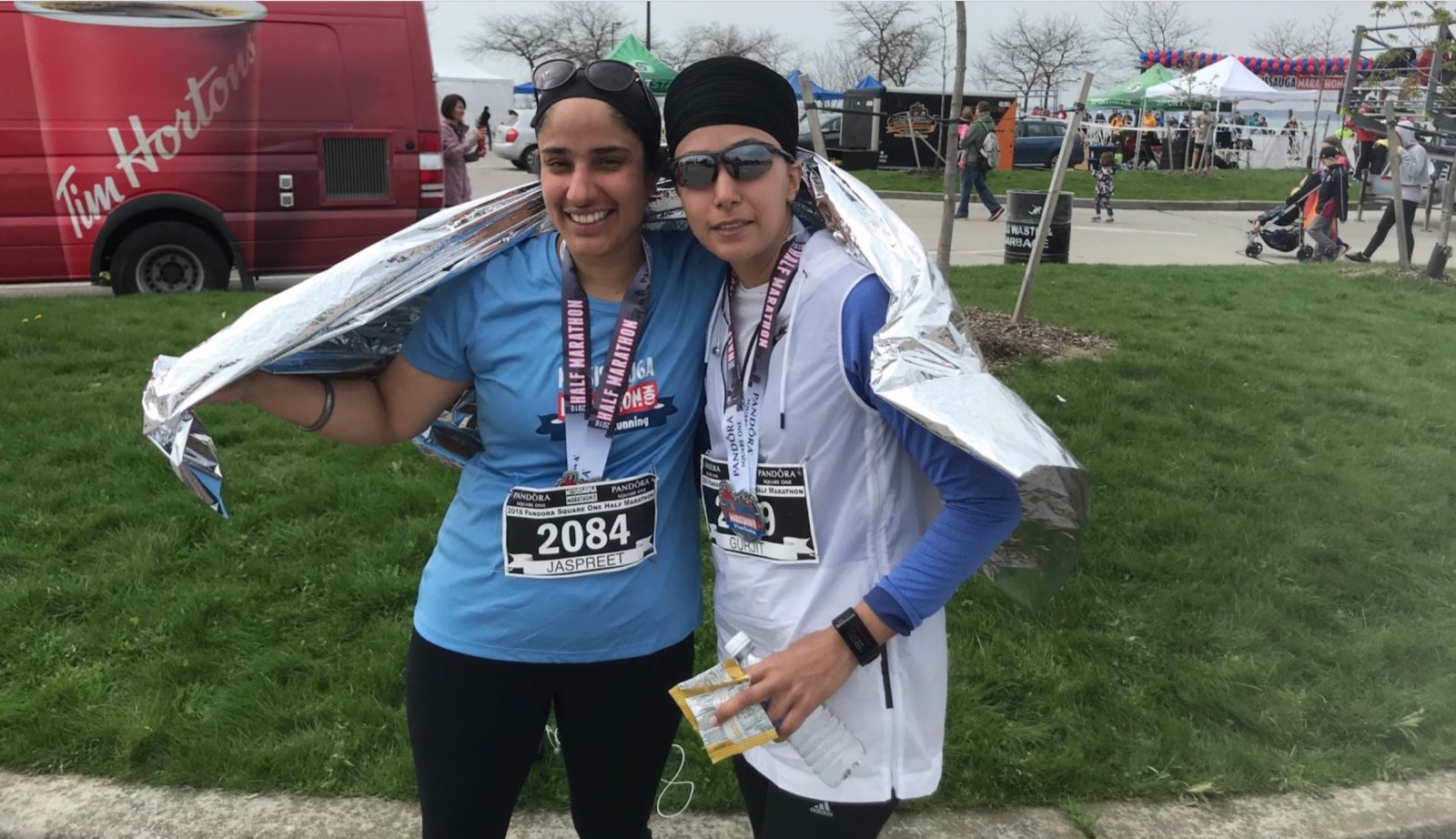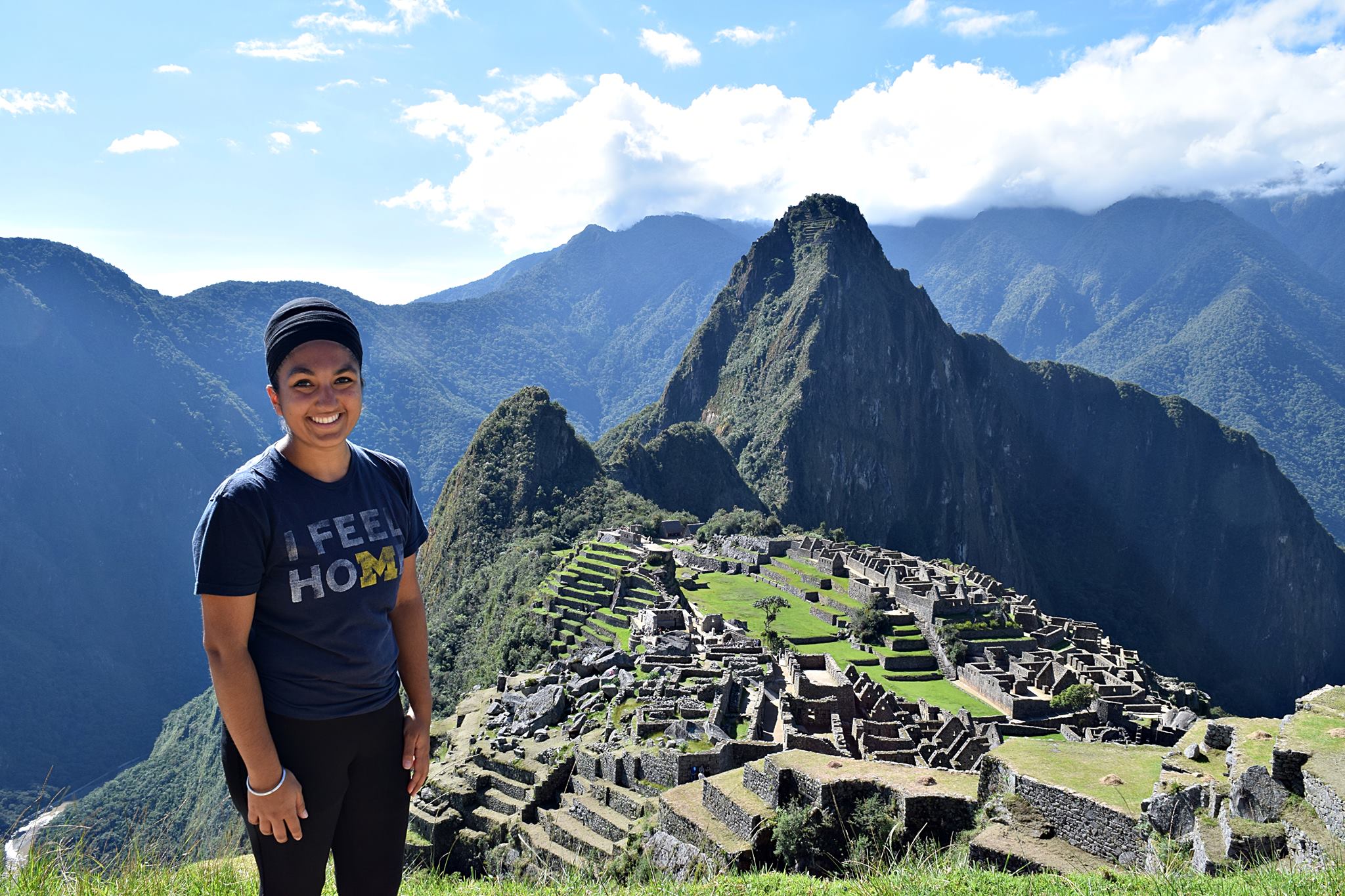Amrita “Ami” Kaur Dang is a vocalist, sitarist, and composer/producer from Baltimore, MD and New Delhi, India. Her sound ranges from North Indian classical fused with noise/ambient electronics to experimental dancepop. She fuses electronic beats and conventional pop structures with hints of her Sikhi, for a genre she calls “Bollywave”. Learn more about her through her website or “like” her on Facebook.
Name: Amrita Kaur Dang
Occupation: Musician
Education: BA, Oberlin College Conservatory of Music. North Indian Classical Music Training.
Describe what you do: I write, record, and perform music. Specifically, I sing, play sitar, and produce electronics. I also use various instruments like keyboards, organ, harmonium, bells, whistles, etc. to craft avant garde pop. I perform 30-90 shows per year live in my hometown of Baltimore and on tour. Despite all of this, I also have other jobs that help pay my bills! Don’t let me fool you.
When and how did you realize this was the career path for you?
In late high school, I was set on studying music in college, and I thought perhaps I would get a PhD in musicology and enter the world of academia. Once I was enrolled in college, I was surrounded by people performing and writing music and creating art (as well as brilliant students of the liberal arts and sciences). I thought that I would enjoy this for a while and then perhaps work in the music industry or at a non-profit. After leaving college, I knew that making music would forever be a part of my life! I knew that I had to pursue it so that I never regretted it later. But now, all of these things are part of my career. I’m a development consultant at Force: Upsetting Rape Culture, an artist and activist collaborative that creates art actions to upset the culture of rape. Also, being an independent musician means that you have to be an entrepreneur and navigate the music industry. I book my own shows, do my own PR, etc.
What do you enjoy about your job the most?
I love writing music and performing. Creating something new is exciting, and music is energizing, meditative, spiritual and can evoke a range of emotions.
Sharing music with others in live performance is exciting because the music is a vehicle for human connection and an exchange of energy. I love that part about live performance.
Considering it is nontraditional, what were your parents’ reaction? How did you deal with their response?
My parents were OK with my decision to study music as long as I had another major. They were not happy when I decided to drop that major… I guess I was pretty rebellious! But after college, when I got my first job (as an assistant at a music non-profit organization), my mom said to me, “I’m proud of you for getting this job, but you’re inherently creative. I hope that you keep exercising your creative side.” I was pretty shocked. It was almost like she said I was selling out for supporting other peoples’ music and not hustling hard enough on my own! That was a wake up call.
How do you balance family and work and hobbies?
It is so hard. I don’t have children, and I don’t know if I will ever have children. I think you can achieve some kind of balance as an artist, but it’s extremely difficult when you’re touring for long periods of time. You’re pretty much homeless. The good part is that my work–making and performing music–is spiritual and meditative. I don’t really have other hobbies other than reading, taking care of my body, and spending time outside. You just need to take as many small opportunities as possible to take care of yourself, visit your loved ones, etc. When I’m not on tour, I work from home, and I work for myself. I call the shots!
How do you feel Sikhi inspires your work?
Kirat karo, naam japo, vand chako. These three pillars of Sikhi (that translate to make an honest living, remember God/recite God’s name, and share with others/your community) have always stuck with me. Having been raised with these values, they are ingrained in every decision that I make.
What elements of Sikh values are in your work?
Some of my music are shabads that I have written melodies for and arranged for non-traditional instruments. I know that this is controversial. But to me, it makes the bani (i.e. scripture) more inspiring. It allows me to stew over one shabad for a long period of time, think about what sounds I want to accompany it and the feeling it should evoke. And then I sometimes get to perform the shabads every day!
What lessons have you learned about Sikhi through your work?
Kirat karo, naam japo, vand chako. Again, I come back to these values. Although I was taught these pillars as a child, I don’t think I understood the true meaning until adulthood–when I was forced to do these things independently without anyone telling me to do them. I don’t take money or hard work for granted. Whatever I have, I share. And I don’t need a lot to survive–and thrive!
What advice do you have for young Kaurs who are unsure of what career they should pursue?
Find a mentor. Make a decision and stick to it for at least a year. You might hate what you’re doing for that year, but you will learn skills and make connections that will help you later in life. (Sometimes, the best lesson to learn in a year is that you never want to spend another day doing a certain job! Internships are a low-risk way to help you decide what you like and don’t like.)
Otherwise, learn the reality of what your potential is within that career. How likely are you to succeed? What are the admission rates for graduate schools (if you want to do that)? Do you have the aptitude for what you want to do? Those things matter. I know I’m in a field with a very small success rate, but I also know that I’ll keep making music no matter what and that I have other career paths waiting for me if I stop trying to make a living off of music. I’ve also been studying music since I was five (as well as theatre and dance)–performing and creating art are normal parts of my life.
If you want to be self-employed in any field, learn about how to be an entrepreneur, which means learning a little bit of everything. You will need to know about real estate, law, publicity, marketing, business, finance, taxes, etc. Take that stuff seriously if you’re trying to make it on your own. You can’t depend on someone else to completely handle those areas for you.

